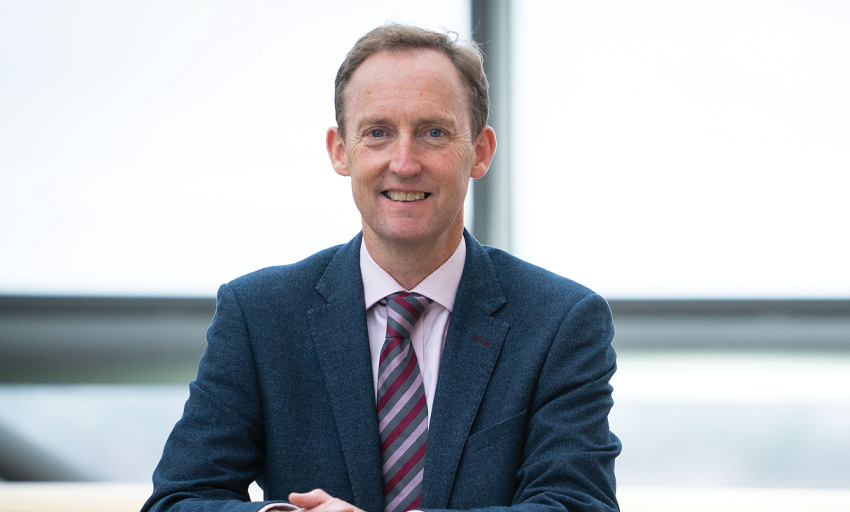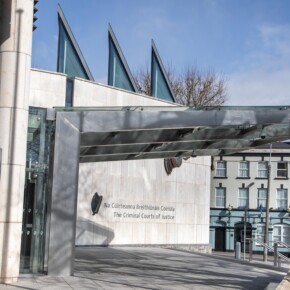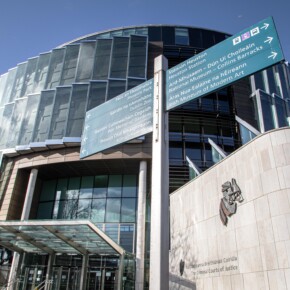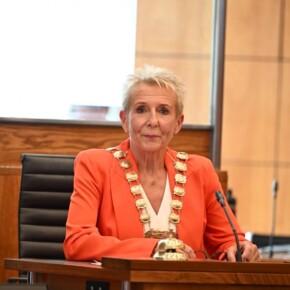European candidates answer our questions: Barry Andrews
Padraig Conlon 06 Jun 2024
Ahead of the European Parliament elections on June 7, we sent a questionnaire with the same eight questions to the candidates running in the Dublin constituency.
Here are the responses from Barry Andrews (Fianna Fail)
It has been 50 years since Ireland joined the EU; has joining had a positive or negative impact on Ireland?
Ireland has gained enormously from membership of the EU. For a small country, we are very much punching above our weight in Europe.
Ireland received €40 billion in EU funds between 1973 and 2018. This has benefited our infrastructure, our services and our economy.
Around 40% of Irish exports are bought by other EU Member States, thanks to the Single Market.
More than 1.3 million Irish jobs are dependent on EU trade links.
There are around 1 million jobs in Dublin. Many of these exist due to our membership of the EU and all the benefits that this brings.
Would you support Ursula Von Der Leyen in a 2nd term as EU Commissioner?
I would not support Ursula von der Leyen. Her double standards and silence in the face of genocide in Gaza are unconscionable.
Would you work with MEPs such as ones from the AFD in Germany or the PVV in the Netherlands if you are elected?
No, these are extremist groups that do not believe that all human beings are equal or deserve the same treatment in society.
The EU was founded on the values of peace, equality, democracy, freedom and the rule of law – we have to do everything in our power to defend these values.
What has the European Union done for the average voter since the last round of elections in 2019?
Notable achievements include:
– A new crackdown on social media giants, forcing them to monitor harmful or false content, especially for young people;
– The very first law to regulate Artificial Intelligence;
– Agreeing the European Green Deal;
– Providing vaccines to all Irish citizens during the Covid 19 pandemic;
– Enabling Ireland’s economy to grow stronger through EU trade links;
– Starting to bring down the costs of medicines;
– Criminalising cyber violence against women;
– Producing the very first pay transparency law so that people can know how much they should be paid for their work, thereby closing the gender pay gap;
What should be the main priorities of the European Parliament over the next 5 years?
Increasing Europe’s competitiveness on the global stage is a top priority.
Millions of jobs depend on this.
The green transition needs to speed up.
I believe the EU could do a lot more on housing.
I have put housing on the agenda of the European Parliament for the first time, calling for a EU wide strategy on housing to help super-charge the progress we are making at home on tackling the housing crisis.
The EU must no longer be silent in the face of genocide in Gaza and we need to hold Israel to account, while playing an active role in the reconstruction of Palestine.
The EU faces an ongoing threat from Russia and we cannot be complacent about this.
We need to fight for the rights of all, especially the rights of women, minorities, people with disabilities and those left behind in the EU.
Migration and security policy will likely dominate the next term of the European parliament. What influence will Ireland have in shaping those policies?
As a sitting MEP I was part of the negotiation of the EU Migration and Asylum Pact.
This is because I strongly believe that Ireland can’t handle this on our own.
We need the EU’s help to introduce robust systems, share the burden when needed, share vital data and get financial support when needed.
The Pact is a done deal, but it hasn’t yet come into effect in Ireland.
Italy’s foreign minister recently called for the establishment of a European Union army; do you agree with the idea?
I do not agree with the idea of an EU army.
And let me be very clear – the issue of Ireland’s neutrality was comprehensively settled at forum in Dublin Castle last month.
There will be no change to Ireland’s military neutrality.
This matter is not up for discussion.
I do believe Ireland and the EU need to invest more in defence and cooperate on training, cyber defence and intelligence.
Would you describe European Union sentiment in Ireland as very bad, bad, good, very good, or excellent?
Sentiment towards the EU in Ireland is excellent, and I am very proud of this.
Irish people are aware of the benefits of EU membership.











